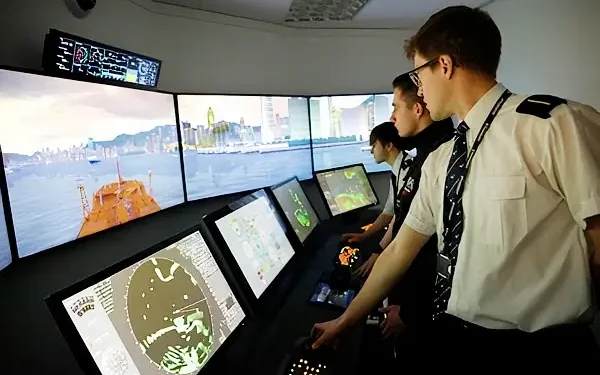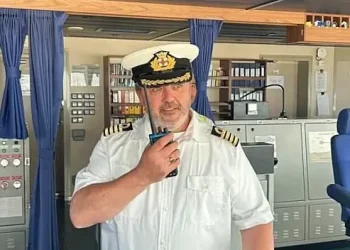A significant milestone has been achieved in the UK’s efforts to revamp seafarer and cadet training, led by the Maritime and Coastguard Agency (MCA).
The Cadet Training and Modernisation (CT&M) Programme has completed a comprehensive review of the UK’s cadet syllabus, a move that is expected to shape the future of maritime training worldwide.
Industry-Led Syllabus Review Sets New Standards
The updated syllabus, a result of collaboration between the MCA, nautical colleges, shipping companies, and seafarers, marks the first major overhaul of seafarer officer qualifications in several years.
MCA Chief Examiner Ajit Jacob emphasized,
“We were very clear from the outset that we wanted this syllabus review to be industry-led and for it not to be the MCA dictating what is needed.”
Updates and Improvements
- Current Practices and Technology: The syllabus has been updated to reflect current practices and technology used on board, ensuring cadets receive the skills necessary to operate safely at sea.
- Human Element Skills: These skills have been integrated throughout the syllabus to improve practical application, boost seafarer wellbeing, and enhance day-to-day operations.
- Continuous Review Approach: A new continuous review process will help keep training aligned with the rapid pace of technological change.
Collaboration
This review is unique in its collaborative approach, involving key stakeholders from the maritime industry. Jacob noted,
“No other maritime nation has performed a review like this in conjunction with industry… We will present it to the IMO next year as we are proud of what we have produced and know that other nations will benefit from this too.”
Implementation and Feedback Mechanisms
The updated syllabus modules are being delivered to nautical colleges and are set to be implemented from September 2025. To ensure ongoing improvement, the MCA has also relaunched a post-training survey to capture seafarers’ views on their entire training experience.
This feedback will be crucial in identifying weaknesses, enhancing strengths, and maintaining relevant skills and teaching methods.
Electric Propulsion Training
In addition to the syllabus review, the MCA has published new criteria for training courses on electric-propelled vessels.
These courses, while not mandatory, must meet minimum learning requirements set by the MCA to ensure seafarers are equipped with the necessary safety and technical knowledge for these emerging technologies.
International Standards
This could significantly benefit UK-trained cadets by aligning international standards with the high quality of training provided in the UK, thereby enhancing their global employability.
A Brighter Future for UK Cadets
The completion of the UK cadet training overhaul marks a significant step forward in maritime education. By adopting an industry-led approach, updating its syllabus, and focusing on current practices and human element skills, the UK will set a new benchmark in seafarer training.
As the maritime industry evolves, the UK’s changes will equip its cadets to meet future challenges.
Sources: THX News & Maritime and Coastguard Agency.









